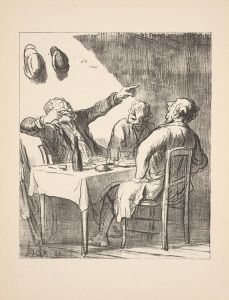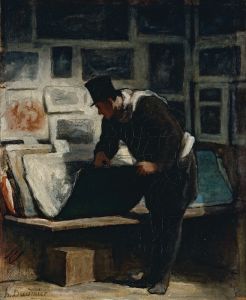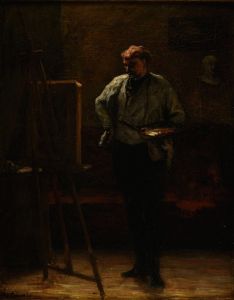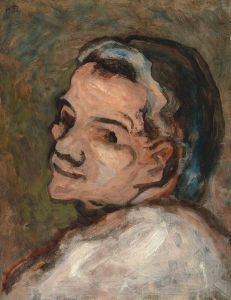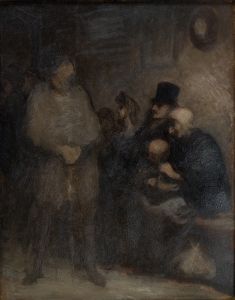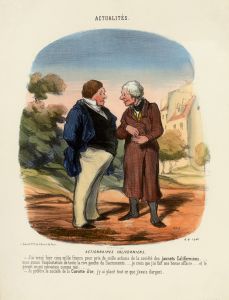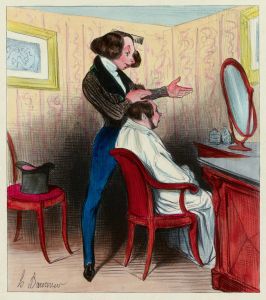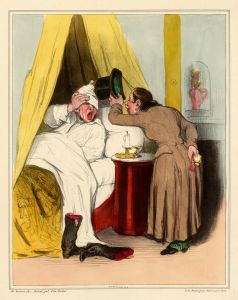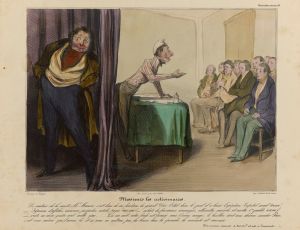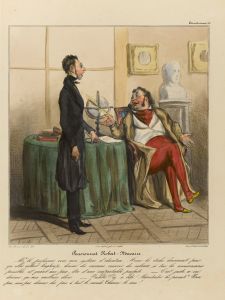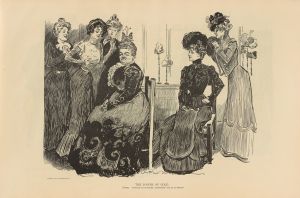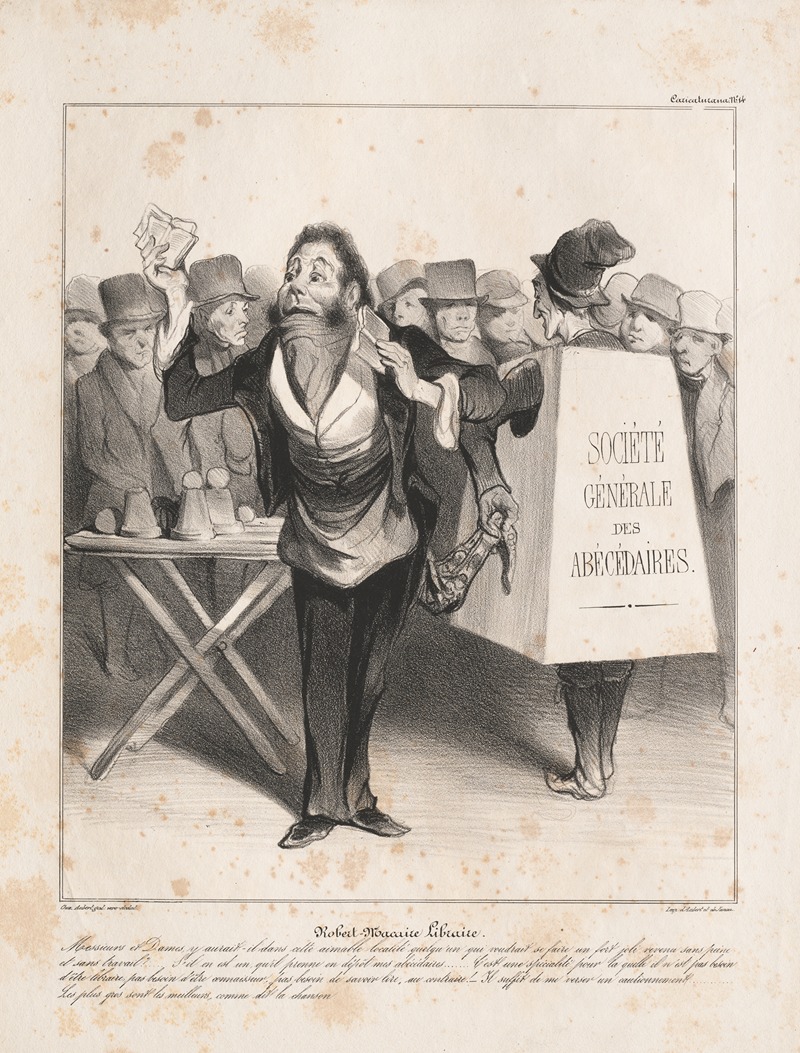
Robert Macaire Bookseller
A hand-painted replica of Honoré Daumier’s masterpiece Robert Macaire Bookseller, meticulously crafted by professional artists to capture the true essence of the original. Each piece is created with museum-quality canvas and rare mineral pigments, carefully painted by experienced artists with delicate brushstrokes and rich, layered colors to perfectly recreate the texture of the original artwork. Unlike machine-printed reproductions, this hand-painted version brings the painting to life, infused with the artist’s emotions and skill in every stroke. Whether for personal collection or home decoration, it instantly elevates the artistic atmosphere of any space.
"Robert Macaire Bookseller" is a lithograph created by the renowned French artist Honoré Daumier. Daumier, born in 1808 and passing in 1879, was a prolific artist known for his satirical works that often critiqued the social and political issues of his time. His work spanned various mediums, including painting, sculpture, and printmaking, but he is perhaps best known for his lithographs, which were widely published in newspapers and journals.
The character of Robert Macaire was originally conceived by playwright Benjamin Antier in the play "L'Auberge des Adrets" in 1823. Macaire is portrayed as a cunning and unscrupulous swindler, a character that resonated with audiences and became a symbol of social critique. Daumier adopted this character in a series of lithographs, using him as a vehicle to satirize various professions and societal roles in 19th-century France.
In "Robert Macaire Bookseller," Daumier depicts Macaire as a bookseller, a profession that, during the time, was associated with the dissemination of knowledge and culture. However, through the lens of satire, Daumier presents the bookseller as a figure of deceit and manipulation, reflecting the artist's critical view of how certain professions could exploit the public. This work is part of a larger series known as "Les Robert Macaires," which Daumier produced between 1836 and 1838. The series was published in the French satirical newspaper "Le Charivari," which was known for its critical stance on politics and society.
Daumier's lithographs, including "Robert Macaire Bookseller," are characterized by their bold lines, dynamic compositions, and expressive figures. His ability to capture the essence of a character with just a few strokes made his work both accessible and impactful. The use of lithography allowed for the mass production of his images, ensuring that his social commentary reached a wide audience.
The portrayal of Robert Macaire as a bookseller is particularly significant in the context of 19th-century France, a period marked by political upheaval and social change. The July Monarchy (1830-1848), during which Daumier created this work, was a time of significant political tension and economic disparity. Daumier's work often reflected the struggles of the lower classes and critiqued the corruption and hypocrisy of the bourgeoisie and political elite.
"Robert Macaire Bookseller" exemplifies Daumier's skill in using humor and satire to convey serious social commentary. By placing Macaire in the role of a bookseller, Daumier not only critiques the profession but also comments on the broader societal issues of trust, integrity, and the commercialization of knowledge. The lithograph remains a powerful example of how art can be used to challenge societal norms and provoke thought and discussion.
Daumier's work, including this lithograph, continues to be studied and appreciated for its artistic merit and its insightful commentary on the human condition. His ability to blend art with social critique has cemented his place as one of the most important satirical artists of the 19th century.






